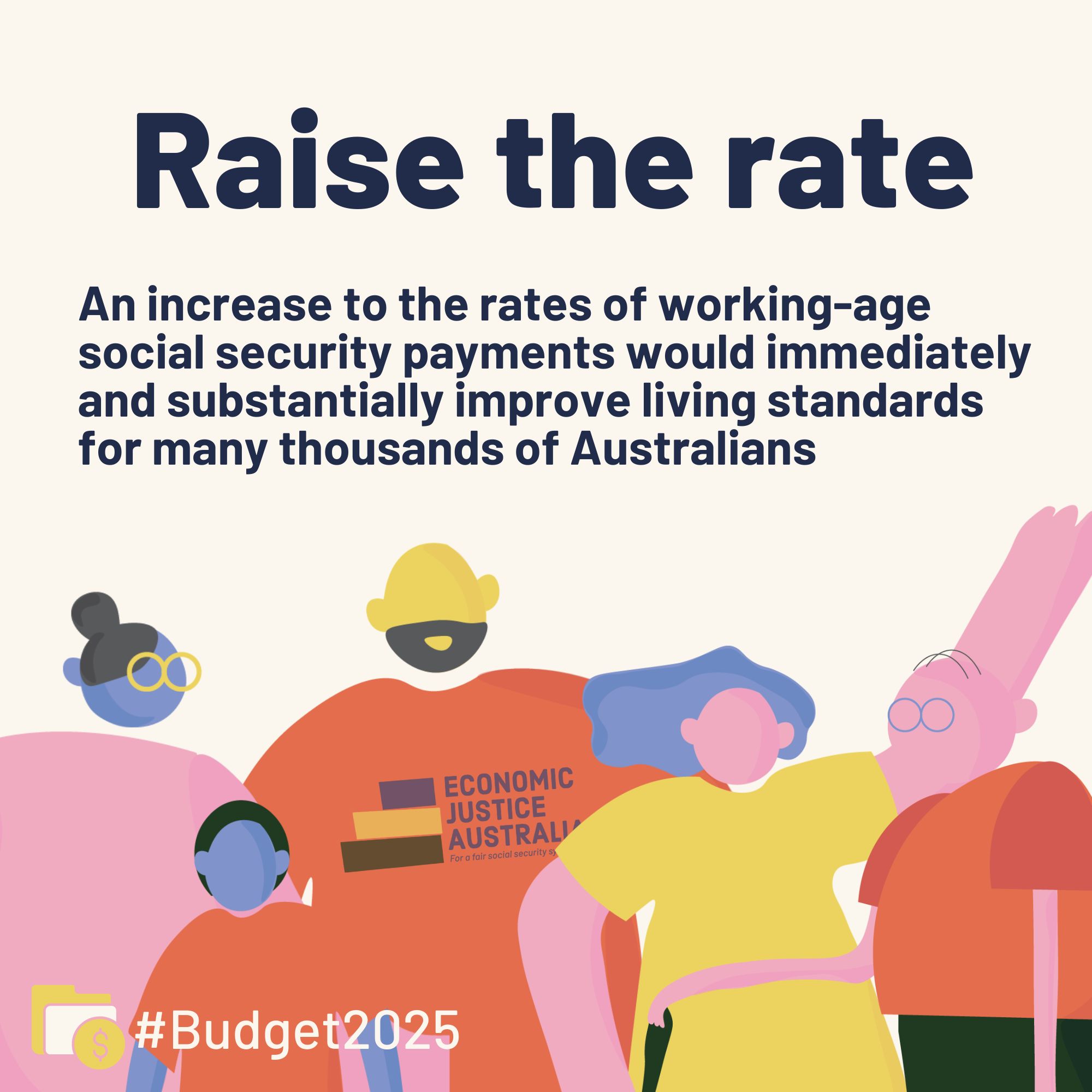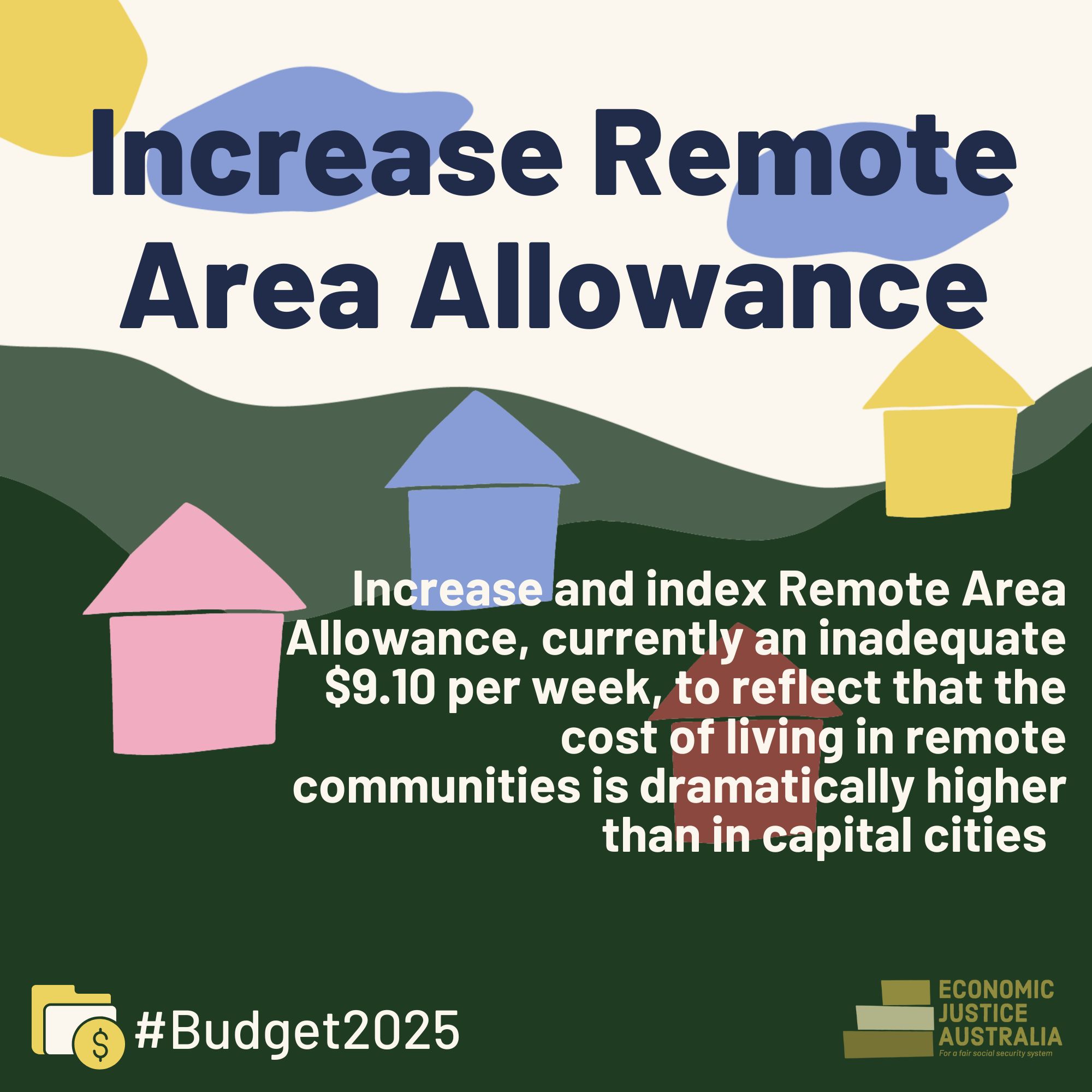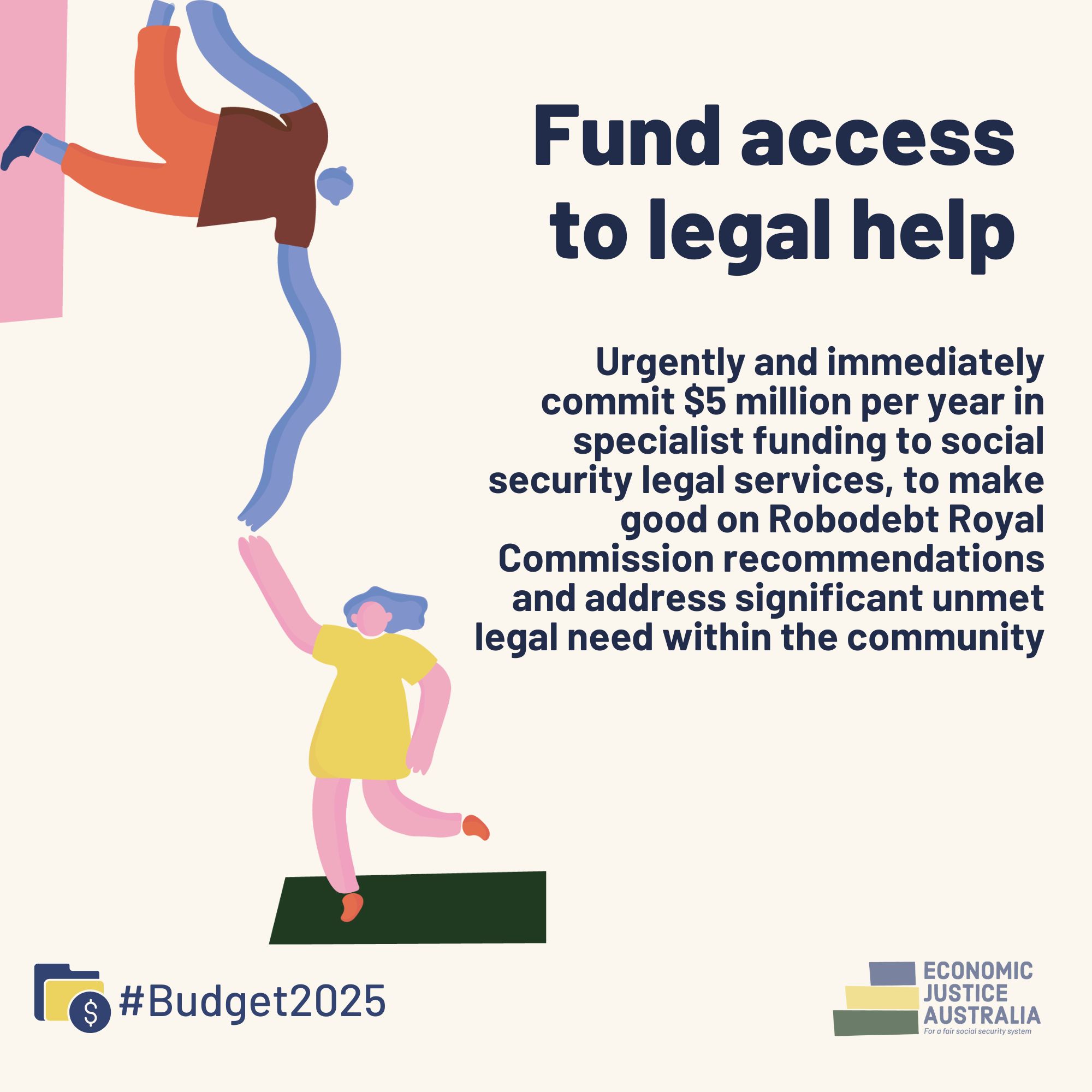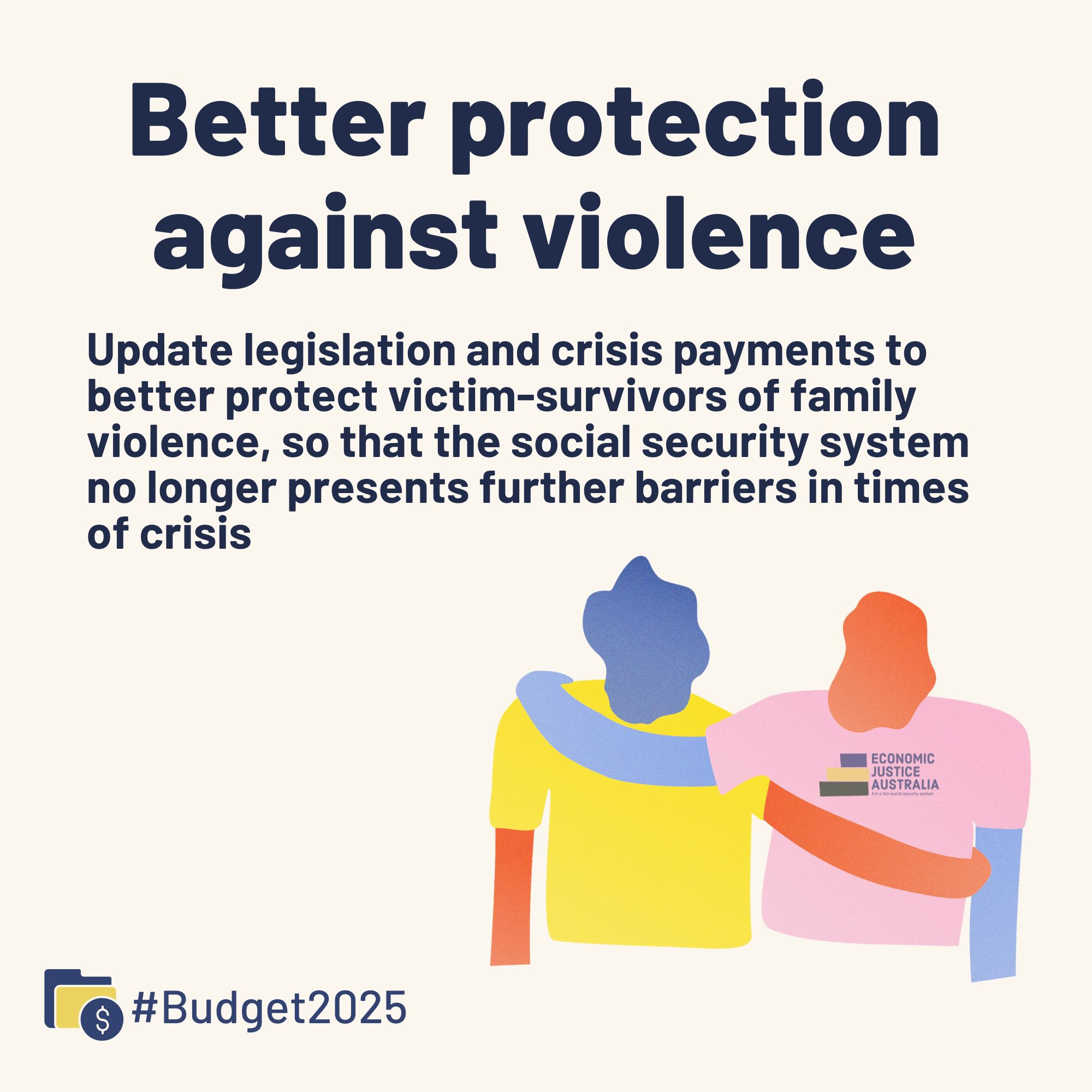Election 2025
The social security system is a foundation of Australian society, and provides substantial benefits to millions of people across a wide range of payments and supports. It is essential that this system is accessible, equitable and supportive. Our key asks of Government for the 2025 Federal Election and Budget can be found here.
Our Budget Asks
- Increase working-age income support and supplements to ensure the rate is at least on par with pension rates – approximately $82 per day.
- A $550 per fortnight Coronavirus Supplement was paid to JobSeekers and recipients of Parenting Payment, Youth Allowance, Farm Household Allowance and Special Benefit as part of the Covid-19 Economic Response. It was used for meeting basic needs, paying off household debt, and other strategic expenditures to improve long-term financial security. Covid-19 was the pilot for rate increase with significant benefits demonstrated. See the Treating Families Fairly Report.
A small supplementary payment for people receiving income support in remote Australia. The current single rate of payment is $9.10 per week. It has not been increased since 2000.
- Immediately increase RAA in line with CPI, lifting single rate to $52.50 per fortnight (see EIAC report). Ensure the allowance is indexed and regularly reviewed to ensure the supplementary payment is adequate.
- The actual estimated cost of equalising the cost of remote Indigenous community living is $120-$300 per week – see report here.
An extra $5m per year to CLCs providing specialist social security legal services as part of NAJP.
Legislative and Policy Reform
Current Government payments are inadequate for victim-survivors to leave a violent relationship and not return. Further barriers exist for victim-survivors to maintain social security payments and stay independent. See EIAC report.
The following resources are necessary to fix this:
- That Services Australia use its information gathering powers to access required documents held by other government departments, including Births, Deaths and Marriages, to proactively assist victim-survivors with identification and other documentary requirements.
- That Services Australia significantly increase the number of social workers, particularly on-site social workers to better provide timely support and assistance to people experiencing FADV.
- That Services Australia develop a mechanism for community workers to engage directly with Services Australia in a timely manner in order to support clients experiencing family violence.
- That the Government fund research to explore models that move away from relationship status as the basis of assessment for social security eligibility.
The following legislative change is necessary:
- Amend 1237AAD of the Social Security Act to allow access to special circumstances debt waiver provisions where the debt results from a false statement, misrepresentation act or omission made as a result of coercion or duress
- Amend s1237AAD of the Social Security Act to allow access to special circumstances debt waiver provisions where the debt results from false statements by the perpetrator who has lied to Centrelink without the victim’s knowledge or under significant threat of violence.
- Amend s1061JH of the Social Security Act to extend the Crisis Payment claim period to 14 days after the extreme violence occurred (currently 7 days).
- Amend S1061JH of the Social Security Act to replace the word ‘home’ with a term encompassing a broader range of residential arrangements, for example, ‘where the person has been residing’.
- Repeal s1061JH(1)(c) and the requirement that a person has or intends to establish a new home.
Further details regarding these proposed reforms are here.
If we are serious about ensuring Robodebt never happens again there needs to be legislative reform. Any other change is temporary. EJA has a full drafting brief for a Bill to make these changes which has been summarised here.
- Abolish the Program of Support (POS)
Section 94 of the Social Security Act needs to be amended to remove the program of support requirement. Full EJA brief can be found here.
A person applying for the Disability Support Pension (DSP) who has scored in excess of 20 points across more than one Impairment Table but did not score 20 points under any single Table, will generally not qualify for DSP until they meet this requirement. This criterion is generally referred to as the Program of Support requirement. However, there is no actual program called ‘Program of Support’. Kinds of activities that are accepted as being POS include those provided by DES, jobactive, ParentsNext or mutual obligations. Systemic issues with POS include:
- The requirement is poorly targeted – people with significant disability and little or no work capacity are excluded from DS Pas a result of POS and instead get stuck on JobSeeker.
- POS is unfair for people who have not accessed, or cannot access, jobseeker payment – people who have been on DSP for years and then are reviewed and put on POS.
- The requirement is not adequately communicated – neither DSP applicants nor job providers understand what POS is or that they are on it.
- People with chronic illness are often trapped by the requirement.
- There are no purported benefits of POS – it is cruel and keeps people who are unwell or with a disability in a state of limbo on Jobseeker for years.
- Medicare Item number for required medical reports to make DSP less expensive
The current cost of doctors’ reports, particularly specialist reports required for Disability Support Pension (DSP) applications, are costly and create a barrier for those needing those reports to access their social security entitlements.
Economic Justice Australia (EJA) calls for the abolition of the current mutual obligations framework in Australia’s social security system. This position is grounded in extensive research, empirical evidence, and a commitment to protecting the dignity and rights of social security recipients.
While advocating for the abolition of mutual obligations, EJA supports:
- A rights-based approach to social security;
- Evidence-based interventions that provide real pathways to employment;
- Genuine, supportive employment services that are sufficiently resourced to help people find work; and
- Policies that respect individual dignity.
Candidate Survey
In the lead-up to the 2025 Federal Election we have asked a wide range of candidates about their public commitments to improvements to our social security system. Our survey questions can be viewed here.
Candidates’ responses will be posted on this page on 20 April.




